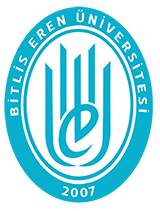Some Remarks on Positive Real Functions and Their Circuit Applications
| dc.contributor.author | ÖRNEK, Bülent Nafi | |
| dc.contributor.author | DÜZENLİ, Timur | |
| dc.date.accessioned | 2024-02-29T11:41:31Z | |
| dc.date.available | 2024-02-29T11:41:31Z | |
| dc.date.issued | 2019 | |
| dc.identifier.issn | 2147-3129 | |
| dc.identifier.uri | http://dspace.beu.edu.tr:8080/xmlui/handle/123456789/14321 | |
| dc.description.abstract | In this paper, a boundary version of the Schwarz lemma has been considered for driving point impedance functions at s = 0 point of the imaginary axis. Accordingly, under Z(0) 0 = condition, the modulus of the derivative of the Z s( ) function has been considered from below. Here, Z( ) a , 1 c and 2 c coefficients of the Taylor expansion of the ( ) ... 1 ( ) p Z s c s = + - + b a function have been used in the obtained inequalities. The sharpness of these inequalities has also been proved. Using the obtained driving point impedance functions in the proposed theorems, corresponding LC circuits have been synthesized and related figures have been presented. | tr_TR |
| dc.language.iso | English | tr_TR |
| dc.publisher | Bitlis Eren Üniversitesi | tr_TR |
| dc.rights | info:eu-repo/semantics/openAccess | tr_TR |
| dc.subject | Extremal function, | tr_TR |
| dc.subject | Schwarz lemma, | tr_TR |
| dc.subject | Positive real function, | tr_TR |
| dc.subject | Taylor coefficients | tr_TR |
| dc.title | Some Remarks on Positive Real Functions and Their Circuit Applications | tr_TR |
| dc.type | Article | tr_TR |
| dc.identifier.issue | 2 | tr_TR |
| dc.relation.journal | Bitlis Eren Üniversitesi Fen Bilimleri Dergisi | tr_TR |
| dc.identifier.volume | 8 | tr_TR |














